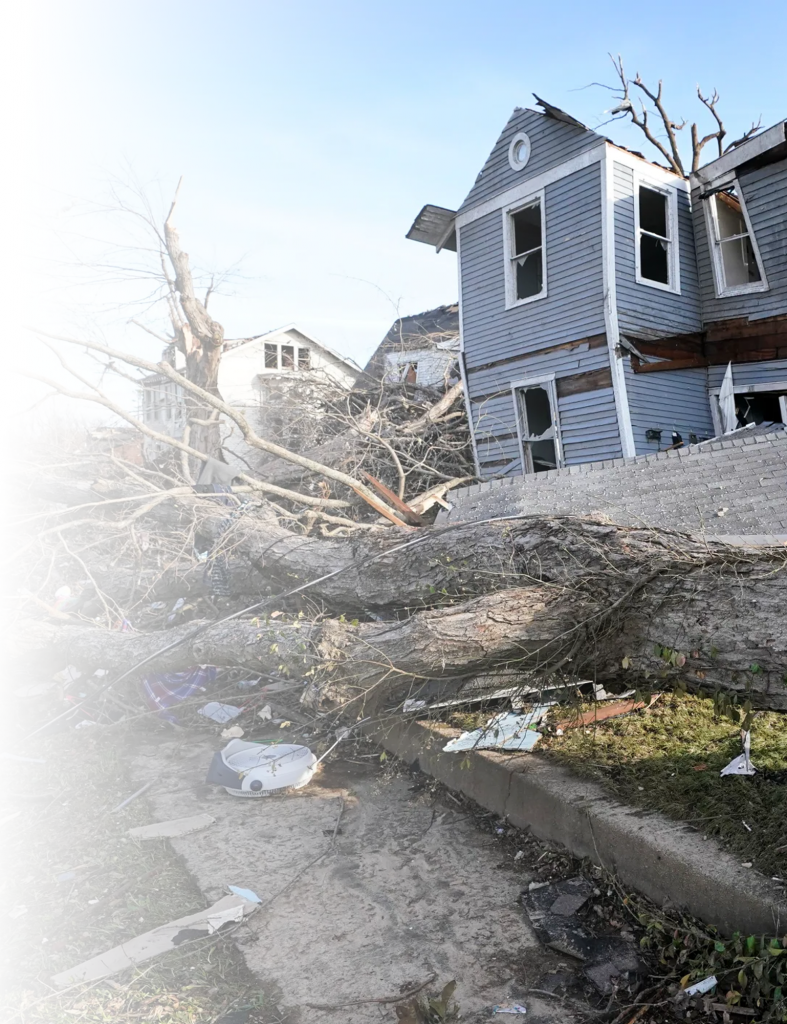Comprehensive Guide to Claiming
Tax Deductions for Hurricane Losses
Comprehensive Guide to Claiming Tax Deductions for Hurricane Losses
Recovering from a hurricane can be challenging, both emotionally and financially.
Thankfully, U.S. tax laws offer hurricane tax deductions to help reduce these expenses.
Recovering from a hurricane can be challenging, both emotionally and
financially. Thankfully, U.S. tax laws offer hurricane tax deductions to help
reduce these expenses.
Recovering from a hurricane can
be challenging, both emotionally and financially. Thankfully, U.S. tax laws
offer hurricane tax deductions to help reduce these expenses.
What Are Hurricane Tax Deductions?
These deductions allow individuals and businesses to reduce taxable income by accounting for losses and expenses caused by the disaster. Eligible costs include repairs and replacements of damaged property not covered by insurance.
Who Is Eligible?
If you’ve experienced property damage due to a hurricane in a federally declared disaster zone, you may qualify for these deductions and claim disaster tax relief.
Covered Expenses
- Repairing or replacing damaged property.
- Costs not reimbursed by insurance.
Eligibility Requirements
- The loss must occur in a federally declared disaster zone.
- The loss cannot be reimbursed by insurance.
What Are Hurricane Tax Deductions?
These deductions allow individuals and businesses to reduce taxable income by accounting for losses and expenses caused by the disaster.
Eligible costs include repairs and replacements of damaged property not covered by insurance.
Who Is Eligible?
If you’ve experienced property damage due to a hurricane in a federally declared disaster zone, you may qualify for these deductions and claim disaster tax relief.
Covered Expenses
- Repairing or replacing damaged property.
- Costs not reimbursed by insurance.
Eligibility Requirements
- The loss must occur in a federally declared disaster zone.
- The loss cannot be reimbursed by insurance.

Steps to Claim Hurricane Tax Deductions:
- Take Photos: Document all affected areas.
- Save Receipts: For repairs and replacements.
- Insurance Reports: Keep all related documents.
Calculating Your Loss
- Evaluate property value before and after the hurricane.
- Hire a professional appraiser if necessary for accuracy.
- Check FEMA: Verify your area’s disaster status on the FEMA website.
- Gather Proof: Collect all damage evidence.
Complete IRS Form 4684:
- Section A: Details about damaged property.
- Section B: Information about insurance payouts.
- Attach Documentation: Photos, receipts, and reports.
Key Points:
- Total value of damages.
- Insurance reimbursements.
- Adjusted Gross Income (AGI) limitations.
Pro Tips:
- Verify calculations.
- Follow IRS guidelines.
Checklist:
- Ensure IRS Form 4684 is correctly filled out.
- Attach all necessary documents.
- File within the required timeframe.
FAQs
- Lack of Full Documentation:
Partial documentation can still support your claim. Consult a tax professional if necessary.
- Amending Previous Returns:
Use IRS Form 1040X for prior year losses.
- Significant Income Decrease:
You may qualify for additional tax credits.
- Business Losses:
Yes, businesses can claim tax relief for hurricane damaged property.
FAQs
- Lack of Full Documentation:
Partial documentation can still support your claim. Consult a tax professional if necessary.
- Amending Previous Returns:
Use IRS Form 1040X for prior year losses.
- Significant Income Decrease:
You may qualify for additional tax credits.
- Business Losses:
Yes, businesses can claim tax relief for hurricane damaged property.

Conclusion
Hurricane damage tax deductions can provide significant relief. By following these steps, documenting losses accurately, and filing correctly, you can secure the disaster loss tax deductions you’re entitled to. For personalized assistance, consult a tax professional.
